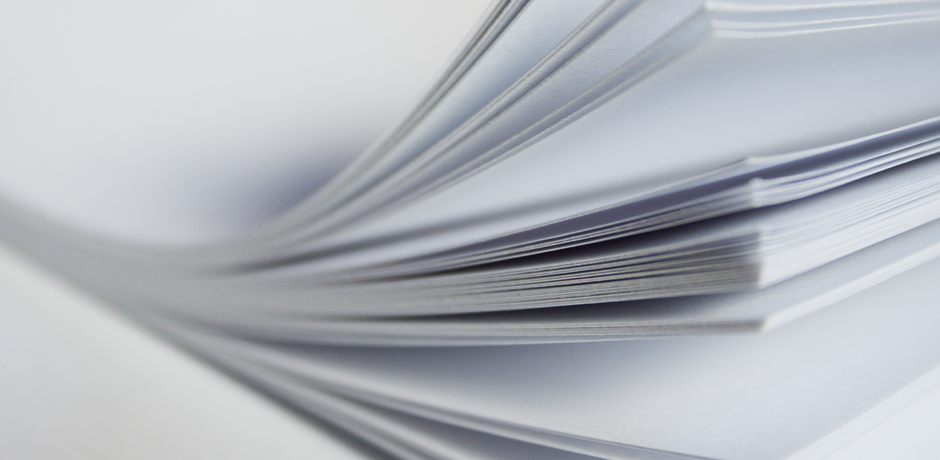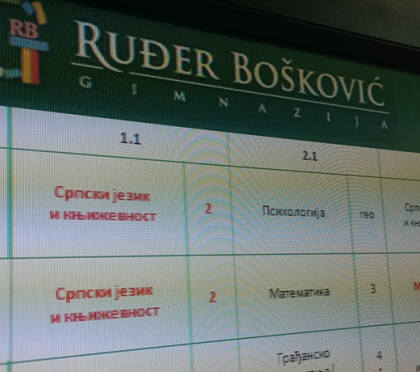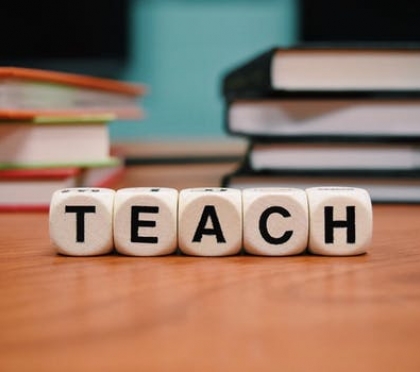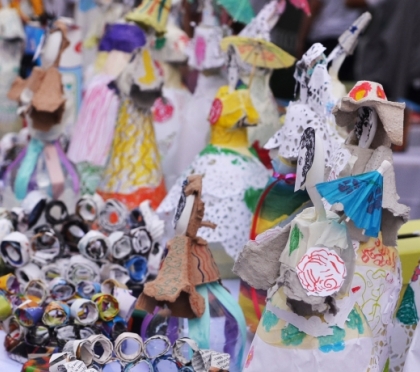Curricula

All programs implemented within the "Ruđer Bošković" education system are unified by:
a) common goals of the educational-teaching process:
-formation and development of functional and transferable knowledge and skills in a way that takes into account the age-developmental characteristics of the students;
-adoption and development of a variety of learning strategies;
-development of positive attitude towards learning as a continuous and lifelong process;
-development of tolerance and openness to diversity,
-development of communication and cooperation skills;
-shaping the sense of responsibility for one's own achievement;
-developing work habits;
b) services provided by the system to support the educational-teaching process:
-provision of textbooks;
-extensive use of library resources;
-organized field trips and excursions;
-organized visits to scientific and cultural institutions and events
-visits by eminent national and foreign scientists and artists
The achievement of these goals is made possible by the didactic- methodological flexibility reflected in the selection and combination of various work methods. Such an approach allows for interdisciplinarity, active participation of students and the development of different learning strategies.
Curriculum of the general profile high school
The "Ruđer Bošković" High School implements the curriculum for general secondary education prescribed by the Ministry of Education of the Republic of Serbia.
Regular classes follow the classroom-lesson system organized on full-day basis (regular class lesson of 45 minutes); additional work with students involves the implementation of activities that are aligned with the syllabus, previous knowledge and achievements of students and their particular interests.
Work with students out of regular school hours is realized every day according to the set schedule. The goals of working with students out of regular school hours are:
- Faster progress of students with lower levels of previous knowledge;
- Mastering more easily the basic requirements of the curriculum;
- Encouraging the development of pupils' special interests;
- Encouraging the development of special abilities of the pupils.
List of compulsory subjects and number of weekly classes:
Subject | First grade | Second grade | Third grade | Fourth grade |
Serbian Language and Literature | 4 | 4 | 4 | 4 |
English (as a first foreign language) | 2 | 2 | 4 | 3 |
German (as a second foreign language) | 2 | 2 | 2 | 2 |
French (as a second foreign language) | 2 | 2 | 2 | 2 |
Russian (as a second foreign language) | 2 | 2 | 2 | 2 |
Italian (as a second foreign language) | 2 | 2 | 2 | 2 |
Spanish (as a second foreign language) | 2 | 2 | 2 | 2 |
Latin | 2 | 2 | - | - |
History | 2 | 2 | 2 | 2 |
Geography | 2 | 2 | 2 | - |
Psychology | - | 2 | - | - |
Philosophy | - | - | 2 | 3 |
Constitution and Civil Rights | - | - | - | 1 |
Sociology | - | - | - | 2 |
Mathematics | 4 | 4 | 4 | 4 |
Physics | 2 | 2 | 3 | 2 |
Chemistry | 2 | 2 | 2 | 2 |
Computer science and IT | 2 | 2 | 2 | 2 |
Music Culture | 1 | 1 | - | - |
Fine Arts | 1 | 1 | - | - |
Physical Education | 2 | 2 | 2 | 2 |
Subject | First grade | Second grade | Third grade | Fourth grade |
Civic Education | 1 | 1 | 1 | 1 |
Religious Education | 1 | 1 | 1 | 1 |
In addition to the compulsory and elective subjects, students can attend Design classes and participate in School Creative Activities - SCA.
Cambridge IGCSE - Cambridge International program for first and second grade high school students.
IGCSE (International General Certificate of Secondary Education) is the world's most popular international program, designed for the population aged 14 to 16 years. The program provides excellent preparation for further education because it develops skills for critical thinking, research and problem solving
The "Ruđer Bošković" High School opted for the following list of subjects:
Group I: LANGUAGES: ENGLISH AND FOREIGN LANGUAGES
ENGLISH | - English as a first language |
FOREIGN LANGUAGES | - French as a foreign language |
Group II: HUMANITIES AND SOCIAL SCIENCES
HUMANITIES | - Global perspectives |
SOCIAL SCIENCES | - Economics |
Group III: SCIENCES
SCIENCES | - Biology |
Group IV: MATHEMATICS
Group V: CREATIVE, TECHNICAL AND VOCATIONAL
TECHNICAL SCIENCES | - Information and communication technologies |
ART | - Art and Design |
The International Baccalaureate - IB Diploma Programme
The International Baccalaureate is a comprehensive educational programme offered in the third and fourth year of high school, and is completed by taking exams at the end of the fourth grade.
The general objectives of the IB programme are: The International Baccalaureate is a comprehensive educational programme offered in the third and fourth year of high school, and is completed by taking exams at the end of the fourth grade. It esures:
- Establishmed international educational standards,
- Fostering understanding of different cultures through shared academic experience,
- Attaining high academic achievements,
- Multifaceted education of individuals,
- Developing sensitivity to the needs of others,
- Raising awareness about the importance of preserving the environment.
To the students, the International Baccalaureate offers:
- A modern curriculum,
- Developing knowledge and skills in various fields of science, necessary for further education,
- Acquiring creative experience by preparing term papers, and implementing projects and research
- Building a responsible attitude towards one's own education,
- Developing learning techniques and self-discipline,
- Developing critical thinking, a personal view of the world, as well as personal creativity and human values.
Students that receive an IB diploma are eligible to apply to universities in more than 110 countries throughout the world, including the most prestigious ones. Depending on their results, they can apply for partial or full scholarships at given universities.
Detailed information regarding the valuation of IB diplomas is available on the website http://www.ibo.org by searching the university recognition link.
In addition to the six subjects, all candidates attend the interdisciplinary course Theory of Knowledge (TOK), aimed at developing critical thinking about the knowledge and experience gained in the classroom and through extracurricular activities. Students are required to conduct independent research activities and write a term paper (Extended Essay) of 4000 words. They are also required to participate in creative activities and community services (Creativity, Action, Service).
| Attachment | Size |
|---|---|
| 118.71 KB | |
| 41.41 KB |




